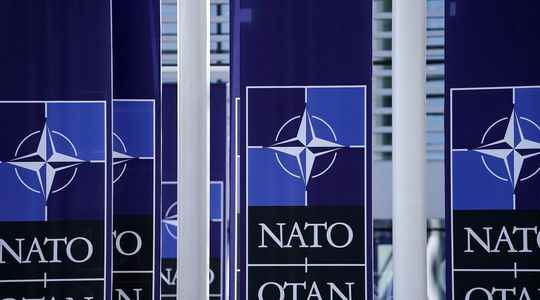Vladimir Putin feared that NATO would gradually expand eastward. With the invasion of his Ukrainian neighbor, the master of the Kremlin obtained the exact opposite of what he hoped for. On Sunday May 15, Finland announced its “historic” candidacy for NATO, and Sweden is about to imitate it. The entry into NATO of the two Nordic countries, seen with a very bad eye by Moscow, would be proof that “an aggression” like the war in Ukraine “does not pay”, welcomed the secretary general of the western alliance, Jens Stoltenberg.
The latter promised that Finland’s accession process would be “smooth” and speedy, while the next summit of the alliance is scheduled for June 29 and 30. Translation: the procedure to join the NATO family could be accelerated for Finland and Sweden because they already tick almost all the criteria. Especially since, from a military point of view, the addition of the Scandinavian armed forces would represent a major boost for NATO’s assets in Northern Europe. By joining the European Union in 1995, the two neighbors gradually moved away from their policy of strict neutrality. They have also participated in various military alliance missions and exchange intelligence with the alliance.
Three criteria already met
These States could therefore benefit from a skip the line, ahead of three countries already in the ranks: Georgia, Ukraine and Bosnia-Herzegovina. Due to necessary adjustments, membership may take several years depending on the profile of the candidate states. Already in 2010, Bosnia and Herzegovina was invited to take part in a Membership Action Plan (MAP), a program which helps them to prepare for membership, without this currently leading to a place in the politico-military organization.
The Nordic countries have the advantage of meeting three criteria: being a European country, respecting democratic principles and contributing to the security of the Euro-Atlantic area. While Finland has already officially expressed its desire to join the alliance, the next step is to be invited by the member countries to start talks. An invitation which must be made unanimously, according to the “open door policy” based on article 10 of the Organization’s founding treaty : “The Parties may, by unanimous agreement, invite to accede to the Treaty any other European State likely to promote the development of the principles of this Treaty and to contribute to the security of the North Atlantic region.”
A highly codified procedure
During these talks at NATO headquarters, several points are discussed in order “to obtain from the invited countries formal confirmation of their willingness and ability to accept the political, legal and military obligations and commitments arising from the Washington Treaty “, unfolds the organization on its website. In other words, the candidates must undertake to take a series of measures with a view to possible cooperation with NATO. This leads to the establishment of a timetable for the implementation of the necessary reforms.
The other crucial point is popular support. The invited state must pass its own law ratifying the North Atlantic Treaty. Several formulas are possible: it can organize a referendum or present the legislation to parliament. This step should only be a mere formality for Finland: 76% of the population is in favor of joining, according to a poll published on Monday 9 May. In addition to the support of public opinion, the political majority is also in favour. The Social Democratic Party to which Finnish Prime Minister Sanna Marin belongs has overwhelmingly backed the Nordic country’s candidacy for NATO.
If the blue carpet seems to be unrolling under the feet of the Nordic candidates, a few minor grains of sand could jam the machine. For membership to be validated, the thirty member states of NATO must give the green light. Among the resistants, we find the Turkish President Recep Tayyip Erdogan who criticizes them – and especially in Stockholm – for showing too much tolerance vis-à-vis the Kurdistan Workers’ Party, the PKK, although it is on the European Union’s list of terrorist organisations.
NATO boss Jens Stoltenberg said he was “confident” in the possibility for the member countries of the Alliance to find a compromise with Turkey, after President Erdogan suddenly displayed his hostility to Swedish membership -finnish. A position that does not alarm Finnish President Sauli Niinistö either. Asked by the American media CNNhe said he was “surprised” by Turkey’s suggestion to prevent his country from joining NATO, but ultimately thinks it will not be a problem.
Croatia and Turkey play spoilsport
For its part, Croatia (member of the EU since 2013 and of NATO since 2009) is also positioning itself upwind: “Finland’s membership of NATO is nothing but dangerous charlatanism, it is like teasing a rabid bear by sticking a pen in its eye. It must be blocked until we find a solution to the crisis in Bosnia and Herzegovina”, declared the Croatian President on April 26 in Zagreb. Accustomed to outbursts, the social-democratic president of Croatia, Zoran Milanovic, uses the candidacies of Sweden and Finland as negotiating leverage to advance the “protection” of the Croatian minorities in Bosnia-Herzegovina, whom he judge of “vital national interest”.
In the meantime, NATO says it is ready to strengthen the “security guarantees” of Finland and Sweden during the transitional period between candidacy and membership.
